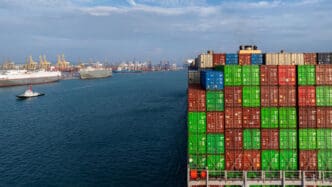Executive Summary
The Story So Far
Why This Matters
Who Thinks What?
Jens Eskelund, president of the European Union Chamber of Commerce in China, has voiced concerns over a significant increase in Chinese exports to Europe. This potential surge, he suggests, may be partly attributed to a “trade diversion” following Washington’s imposition of sweeping import tariffs in April. However, the European Commission currently maintains that there is no evidence of a major trade diversion causing alarm.
Drivers of Export Growth
During an interview on Tuesday, Eskelund noted a decline in Chinese exports to North America during the first half of the year, leading him to consider trade diversion as a contributing factor to the shift towards Europe. Beyond this, he identified the robust competitiveness of Chinese firms, a weaker Chinese currency, and substantial state support as primary drivers behind the observed export surge. These factors, he indicated, are creating pressure for European businesses operating in China.
Challenges for European Businesses in China
The latest survey by the EU Chamber of Commerce in China paints a challenging picture for European companies. A significant 73% of respondents reported that doing business in China is becoming harder year after year, with confidence reaching an all-time low. Furthermore, more than half (52%) indicated that the business environment had become increasingly politicized compared to the previous year.
Eskelund attributed the prevailing pessimism primarily to the state of the Chinese economy, highlighting intense competition across various sectors and overcapacity in others. He suggested that the sentiment could improve if Beijing focuses on rebalancing supply and demand. “We really think the Chinese government right now needs to focus on how do we get back to a situation where demand and supply are in better alignment than is the case today,” he argued.
EU Commission’s Stance
The potential for shifting trade flows from the US to Europe carries serious implications for European industries, particularly if imports are offered at very low prices, which could strain local producers. Despite these concerns, EU Commission spokesperson Olof Gill stated on Monday that the Commission’s current assessment does not indicate an increase significant enough to be a cause for alarm. “Our assessment at present moment is that there is no such increase that is a cause for alarm,” Gill told reporters.
Outlook on EU-China Trade
The discussion surrounding rising Chinese exports underscores the complex dynamics at play in global trade, influenced by international tariffs and China’s domestic economic conditions. While European business leaders in China articulate growing concerns, the European Commission currently holds a more measured view, highlighting the differing perspectives on the immediate impact of evolving trade patterns on the EU market.








